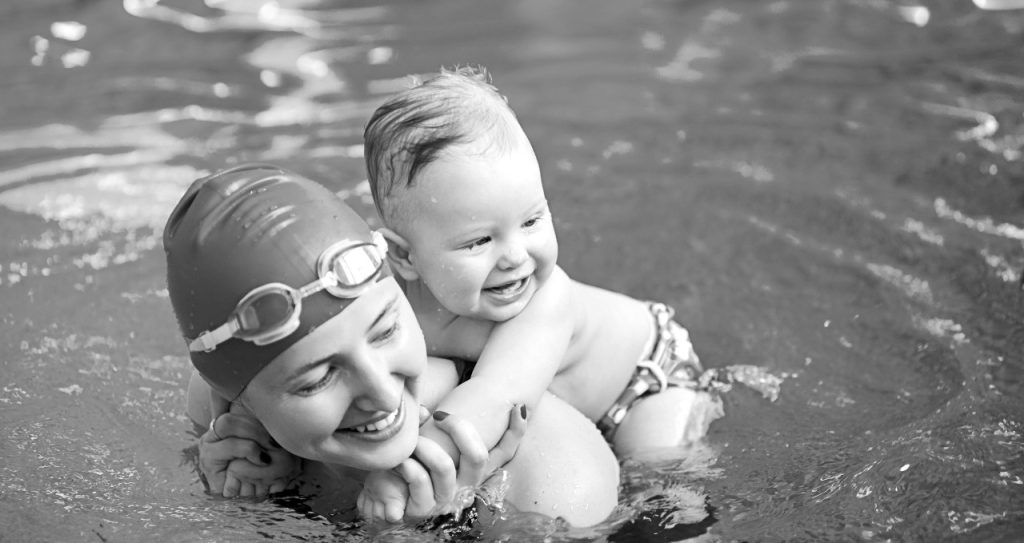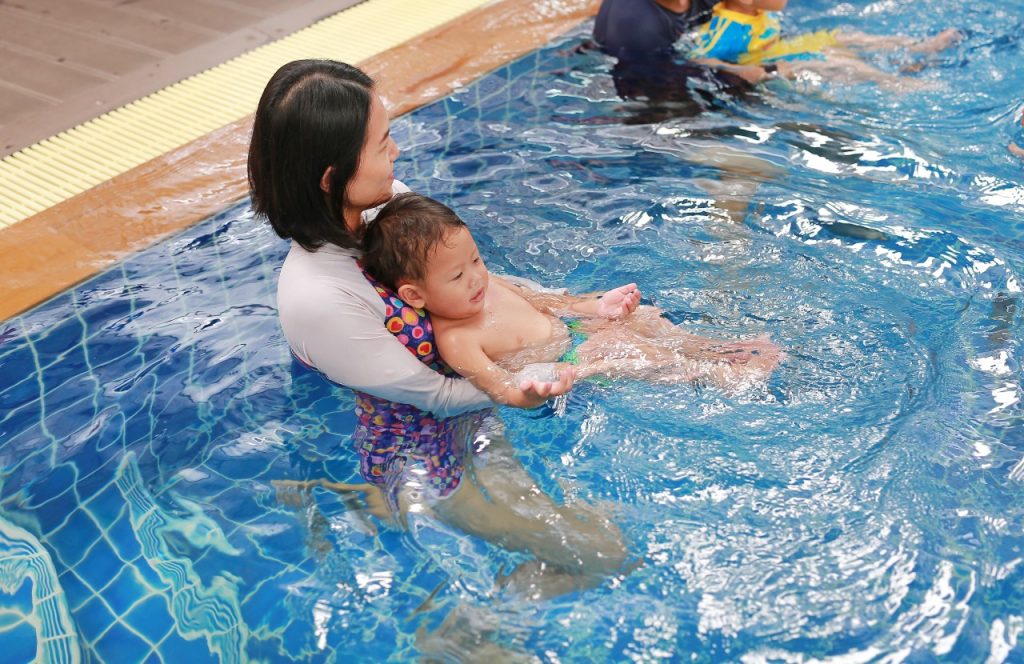Introducing your baby to water can be an exciting and rewarding experience for both you and your little one. By taking the time to gradually build their confidence and trust in the water, you can help set the stage for a lifetime of enjoyment in swimming and other water-based activities.
In this guide, we’ll explore the steps to safely and effectively introduce your baby to the water, ensuring a positive experience for all involved.

Start Early
The earlier you introduce your baby to the water, the better. Young babies have a natural affinity for water, making it easier for them to adapt and feel comfortable. Aim to start your baby’s water experiences around the age of six months, or as soon as your pediatrician gives the green light.
Make Bath Time a Positive Experience
One of the simplest ways to introduce your baby to water is by making bath time enjoyable and stress-free. Sing songs, play with bath toys, and maintain a calm, gentle demeanour to help your baby associate water with positive experiences. This will help lay the groundwork for a smooth transition to larger bodies of water, such as swimming pools.
Gradually Increase Exposure
When you feel your baby is ready to experience a swimming pool, start by visiting a baby-friendly pool with warmer water and a shallow area. Initially, limit your visits to a few minutes, gradually increasing the duration as your baby becomes more comfortable. This gradual exposure will help build their confidence and trust in the water.

Hold Your Baby Securely
While in the water, always hold your baby securely and maintain eye contact. Your physical presence and reassurance will help your baby feel safe and secure, fostering trust in both you and the water. As your baby grows more confident, you can experiment with different holds and allow them to explore the water with more freedom.
Use Toys and Games: Incorporate toys and games into your baby’s water experiences to make it more engaging and enjoyable. Toys like floating objects, cups, and small watering cans can help keep your baby entertained and focused on having fun, rather than any fears or apprehensions they might have about the water.
Stay Calm and Positive
Your baby will pick up on your emotions and reactions, so it’s essential to remain calm, positive, and confident during your water-based activities. If you’re anxious or nervous, your baby will sense this and may become uneasy themselves. By maintaining a relaxed and positive attitude, you’ll help your baby feel more secure and confident in the water.
Enroll in a Baby Swimming Class
Baby swimming lessons can be an excellent way to introduce your baby to the water in a structured, supportive environment. Instructors are trained to help babies develop water confidence and learn essential swimming skills, while also providing guidance and support for parents. Look for a class that focuses on building confidence and trust, and prioritizes fun and enjoyment.
More benefits of baby swimming lessons.
Be Patient and Consistent
Building confidence and trust in the water takes time, so be patient and consistent in your approach. Some babies may adapt quickly, while others may take longer to feel comfortable. Regular, positive water experiences are key to helping your baby develop confidence and trust, so aim to incorporate water-based activities into your routine as often as possible.
Introducing your baby to water can be a fun and rewarding experience when approached with patience, consistency, and positivity. By following these steps, you’ll help your baby build confidence and trust in the water, setting the stage for a lifetime of enjoyment in swimming and other water-based activities.
Article by Jane Christie-Rye. Lasted checked for accuracy and updated 23rd April 2023.
All our content is regularly checked for accuracy. For more information on our editorial standards click here.
Our baby swimming guides:
The Double Nappy System – by Emma Reed
The Benefits of Baby Swimming Lessons: Physical, Mental, and Emotional
A Guide to Introducing Your Baby to Water: Building Confidence and Trust
Baby Swimming Photography: A Guide for Mums and Dads in the UK
Developing Your Baby’s Swimming Skills: From Water Familiarisation to Independent Swimming
8 Essential Steps for Introducing Your Baby to Swimming
The Role of Toys in Baby Swimming: Boosting Engagement and Learning
